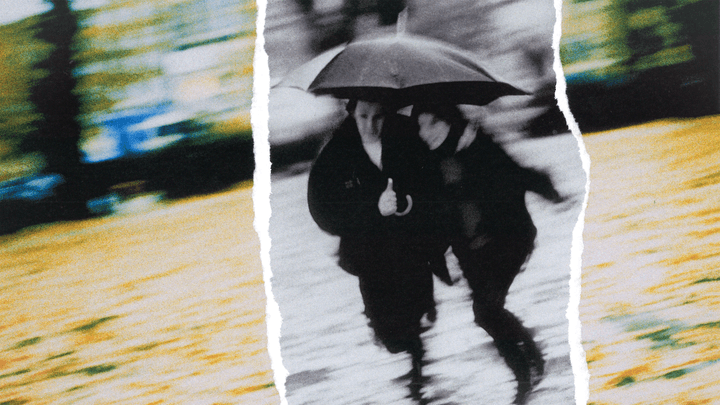It was a Friday night in New York City, and for once, we’d actually managed to pull it off—a table for six at The Odeon, reserved a week in advance like real adults. We planned to order martinis and steak frites and talk about everything—jobs, exes, celebrity gossip, the usual.
Two espresso martinis in, someone was telling a story about a finance guy who cried after sex. We were laughing hysterically when a voice cut in—deeper than it should have been.
“I’d say it’s a good sign he’s in touch with his emotions.”
We turned.
It was Brad.
Sara’s boyfriend.
Apparently, now a regular at our girls’ nights.
An hour earlier, Sara had texted: “Hey! Brad’s work dinner got canceled. Mind if he joins?”
But Brad didn’t just join. Brad inserted himself—into plans, into moods, into the background of my iPhone photos. He’d started showing up to brunches (multiple), park walks, movie nights, and what was supposed to be a quick drink that turned into oysters and a lecture about his literary magazine. Two weeks ago, he even tagged along for a pedicure.
He became a constant in what had always been women-only territory. Our conversations, once unfiltered and electric, now had to be softened for male consumption.
I remember snapping, sharper than I meant to: “Leave. Him. At. Home.”
I didn’t hate Brad. In fact, he was a great boyfriend to Sara. But the truth was, I never chose him. None of us did—just like you don’t get to pick your neighbors.
Friend groups are delicate ecosystems, and they can unravel fast when someone becomes codependent with a partner. Codependence can look like closeness, but it quietly takes over, like an invasive weed in a carefully tended garden. I know this shift all too well—that slow drift toward someone else’s center of gravity.
You know those women who start dressing like their boyfriend’s fantasy? Adopting his music taste, his opinions, as if auditioning for a role? That was me. Once, I found myself in a bikini top and mini shorts on the back of a motorcycle, speeding down a Brooklyn freeway, thinking, This must be love. (Now, I’m just grateful I still have skin.)
Sara used to glide into brunch glowing, smelling like expensive perfume (Portrait of a Lady), dressed like a Parisian art dealer’s girlfriend—crisp linen, perfectly fitted vintage Levi’s, the kind of effortless style I could only imitate with a Pinterest board. She had a high-powered job with real dental insurance and could command a room of lawyers without notes.
Then, almost overnight, she started fading. Her ambition dulled in real time.
It wasn’t Brad’s fault. He never asked her to shrink herself. She just… did. One small compromise at a time. Skipping dinners. Biting her tongue. Swapping “I’m starving” for “We already ate.”
Sometimes I wonder if she even notices. The way her opinions come out slightly edited now, how she glances at Brad before finishing a sentence—does she see it, or is it only obvious to the rest of us?
For advice, I reached out to Dr. Karen Jacob, a psychologist at Harvard Medical School.
“If your friend is truly enmeshed—losing their individuality or neglecting other parts of their life for the relationship—it often points to something deeper,” she explained. “You can’t fix it for them. You can gently point out what you see, but they have to recognize it themselves.”People need to recognize their own patterns to make meaningful changes.
That said, Dr. Jacob notes that if a friend’s romantic relationship is affecting your friendship, it’s worth speaking up. “Relationships thrive when people learn to name their emotions and communicate openly about how others’ actions impact them,” she explains. “This is key in any relationship. Expressing your feelings calmly and clearly gives your friend a chance to reflect on their behavior—and ideally, helps preserve your connection.”
In the meantime, your role is to support them with empathy, set healthy boundaries, and stay true to yourself.
When we think of codependency, we often picture neediness and drama. But it’s usually much quieter—like constantly asking for permission, defaulting to deference, or staying silent just to keep the peace.
Yes, falling in love can sometimes feel like losing yourself. You merge lives, share Wi-Fi, and start saying things like, “Babe, did you book the thing?” as if it’s a love language.
But here’s the thing: Love shouldn’t mean dissolving into each other. It should mean standing side by side. Real love pushes you to be more of who you are, not less. Otherwise, aren’t you just fading away?
